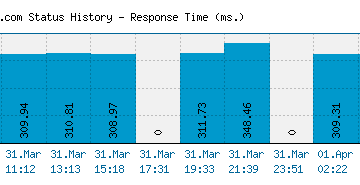The Impact of Artificial Intelligence in 2023

Introduction
In 2023, artificial intelligence (AI) has become a cornerstone of technological development, impacting various sectors globally. As organisations increasingly integrate AI-enabled systems into their operations, the relevance of this technology has surged. The conversation around AI extends beyond mere automation; it encompasses ethical considerations, job displacement, and innovations that challenge traditional business models. Understanding these dynamics is essential for businesses and consumers alike.
Current Developments in AI
Recent advancements in AI technology have seen remarkable progress in areas such as natural language processing, machine learning, and computer vision. Companies like OpenAI and Google are at the forefront of developing sophisticated models that enhance human-computer interactions. For example, the introduction of AI-powered virtual assistants and chatbots has revolutionised customer service, providing 24/7 support and tailored experiences for users.
Additionally, industries such as healthcare are experiencing a profound transformation, with AI applications in diagnostic processes and patient management. Recent studies indicate that AI algorithms can detect certain diseases more accurately than human counterparts, which could lead to better patient outcomes and more efficient use of resources.
The Ethical Landscape of AI
As the prevalence of AI technologies increases, ethical dilemmas have emerged, prominently concerning data privacy and algorithmic bias. Many experts call for stricter regulations to safeguard personal information and ensure that AI systems operate fairly. In 2023, various governments and regulatory bodies across the globe are working together to establish frameworks that address these concerns without stifling innovation. For instance, the European Union’s AI Act proposes guidelines to classify AI systems based on their risk levels, thereby tailoring regulatory measures accordingly.
Looking Ahead
The future of AI appears filled with potential yet remains fraught with challenges. AI’s role in shaping industries will only grow stronger, with applications expanding into climate change, finance, and education, among others. As we move forward, it is imperative for stakeholders to engage in dialogues about responsibly harnessing AI’s capabilities. Undertaking collaborative efforts among technologists, policymakers, and the public will ensure that the benefits of AI are realised while safeguarding against its risks.
Conclusion
In summary, artificial intelligence’s impact in 2023 is undeniable, influencing a wide array of sectors and societal norms. As businesses and individuals navigate this transformative landscape, awareness and proactive engagement will be vital in ensuring AI’s integration is both beneficial and ethical. The continued evolution of AI technologies will affect our daily lives in profound ways, making it essential for everyone to remain informed and involved in conversations surrounding its development.









